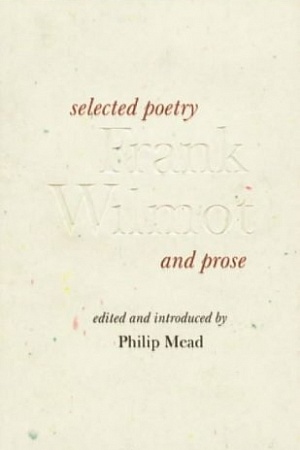Poems for America
Interactive Press, $22 pb, 80 pp
No time to waste
David Rowbotham is a Queensland poet whose first book was published nearly fifty years ago. His career has a shape that is often found in the arts: a quiet figure whose work is politely rather than rhapsodically received, and whose reputation grows almost by a process of attrition until, eventually, he is one of the few of his contemporaries left standing. It often comes about that a consistent, undemonstrative style, adhered to religiously, itself becomes an important statement, to be rediscovered by a new generation of contemporaries. But this is not quite what has happened in Rowbotham’s case, because his books have changed continuously. He began writing as a young man, returned from the war, discovering for the first time the place in which he had grown up: Ploughman and Poet (1954) may be Bulletin in style, but it is a complex book, and the central oppositions between city and Darling Downs, between manual labour and poetry, remain compelling.
Perhaps the central pattern of Rowbotham’s career has been rediscovery. His first book rediscovered the rural life, and later ones have rediscovered those war experiences firmly put aside in his earlier works. Now this strange new collection rediscovers, on the surface, travel experiences, but its real task is rediscovering the self by a complex form of redefinition. It aims to do this by exploring self-history – when you are close to eighty (Rowbotham was born in 1924), you can see yourself not only as a developing self but as an historical phenomenon. But, instead of containing thoughtful, autumnal retrospectives or (pace Dorothy Hewett’s last books) intense but lucid flashes from past experience, Poems for America is a series of difficult, compressed, multi-layered poems, squashing together personal experience, myth and history, with complex results.
Poems for America is a powerful, even extraordinary, book but, caveat lector, it is not one that declares its qualities immediately or easily. Stylistically, for example, it is a long way from the opening lines of ‘For the Darling Downs’, the first poem in his first book – ‘Your subtle veins of soft creeks lisp and beat / Under the exile’s dream, and your ripe wheat, / Golden like a fable, quivers in blades / Of light in the white appraisal of the clouds’ – to these lines, taken at random from the American poems early in this book:
Continue reading for only $10 per month. Subscribe and gain full access to Australian Book Review. Already a subscriber? Sign in. If you need assistance, feel free to contact us.











Leave a comment
If you are an ABR subscriber, you will need to sign in to post a comment.
If you have forgotten your sign in details, or if you receive an error message when trying to submit your comment, please email your comment (and the name of the article to which it relates) to ABR Comments. We will review your comment and, subject to approval, we will post it under your name.
Please note that all comments must be approved by ABR and comply with our Terms & Conditions.